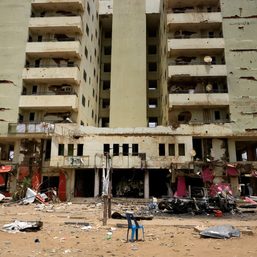SUMMARY
This is AI generated summarization, which may have errors. For context, always refer to the full article.

Sudan saw record-breaking inflation last month, topping 212% year-on-year driven by increases in food and rent prices, the country’s statistics office said on Tuesday, October 13.
“The annual [inflation] rate was 212.29% for the month of September 2020, compared to 166.83% in August,” the Central Bureau of Statistics said in a statement.
The local currency is in free fall in the import-dependent country, trading at between 240 and 250 Sudanese pounds to the dollar.
That compares to 50 pounds when a transitional government took over following the April 2019 fall of autocrat Omar al-Bashir.
The government in September declared a state of economic emergency to avert a further downturn, as the finance minister blamed the sharp dollar rise on “systematic sabotage” by currency market manipulators.
The United Nations (UN) said late last month that food prices in Sudan had tripled over the past year, while the cost of health services had increased by 90%.
The depreciating Sudanese pound is “eroding families’ purchasing power and ability to provide for themselves,” said the UN Office for the Coordination of Humanitarian Affairs.
The country’s economy has suffered from Sudan’s inclusion on Washington’s terror blacklist, decades-long US sanctions, and the 2011 secession of the country’s oil-rich south.
Economic hardship has been further aggravated this year by weeks-long coronavirus lockdown measures in the capital Khartoum and neighboring cities as well as floods that affected hundreds of thousands of people.
The protests that started in late 2018 and eventually led to Bashir’s ouster were sparked by the previous government’s abrupt tripling of bread prices. – Rappler.com
Add a comment
How does this make you feel?


![[OPINION] No time to wait to protect vulnerable lives in Sudan](https://www.rappler.com/tachyon/2023/06/sudan-june-15-2023.jpg?resize=257%2C257&crop=292px%2C0px%2C720px%2C720px)

There are no comments yet. Add your comment to start the conversation.